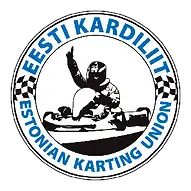Hedman advises Estonian Karting Union
Hedman’s attorney-at-law Urmas Kiik achieved a significant victory through the Estonian Supreme Court, which is certain to become a groundbreaking milestone ruling in the field of sports law.
In the autumn of 2021, the Estonian Autosport Union decided to impose a three-year ban on Hedman’s clients – the Estonian Karting Union and two of its members, which would restrict them from participating in any karting competitions both domestically and internationally. What complicated the matter further, however, was the fact that Hedman’s clients were not members of the Estonian Autosport Union, which meant that they could not, by the Autosport Union’s own internal regulations, appeal the ban through the Autosport Union’s arbitration court.
This resulted in a legal deadlock, wherein the Autosport Union had restricted Hedman’s clients from participating in competitive karting sport, and left them completely unable to dispute this decision, with seemingly no other choice than to abide by it.
To defend the rights of our clients, we turned to the Estonian national courts.
By law, non-members of a legal entity (such as the Estonian Autosport Union) are unable to challenge the legality of the decisions of such entities through the judicial system. Because of this, both the county court and the circuit court found that Hedman’s clients had no legal interest to appeal the decision of a legal entity they were not members of, even though the contested decision was clearly and severely restricting their rights.
When the matter came to the attention of the Supreme Court, an unprecedented verdict in Estonian sports law was made, wherein the Supreme Court ruled that a national sports federation, like the Autosport Union, cannot leverage its monopoly and dominant position in the motorsport market to limit third-party rights, such as those of Hedman’s clients. Specifically, it cannot dictate who may or may not participate in a sport, and under what conditions. If a national sports federation does so (as was the case here), the restricted person must be granted the right to appeal such a restriction and any underlying decisions in the national courts.
The Supreme Court therefore annulled the rulings of the lower courts and returned the dispute between the Estonian Autosport Union and the Estonian Karting Union to the district court. The district court must now assess the claims of Hedman’s clients substantively and rule on the annullment of the Estonian Autosport Union’s decision.
The Supreme Court’s ruling can be found on the Supreme Court’s website.
